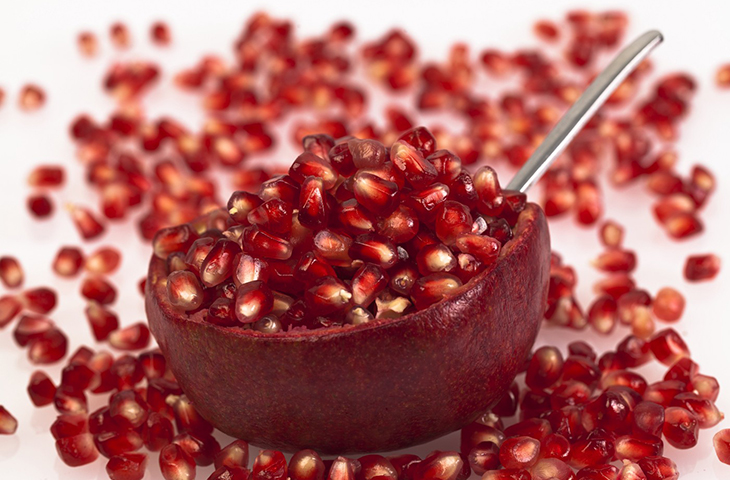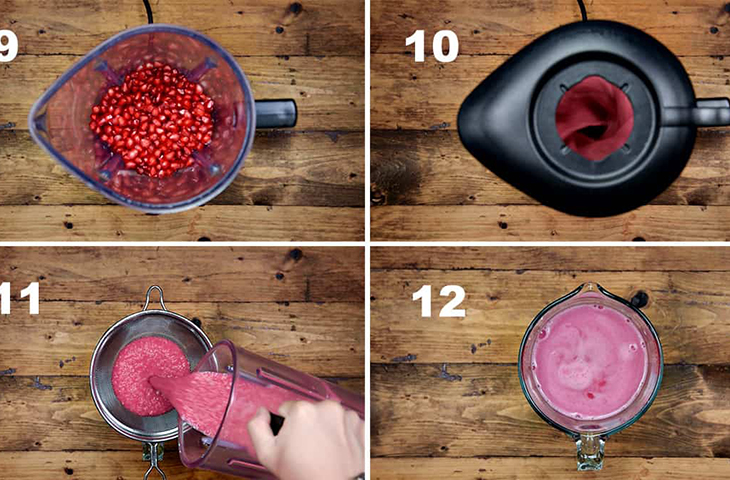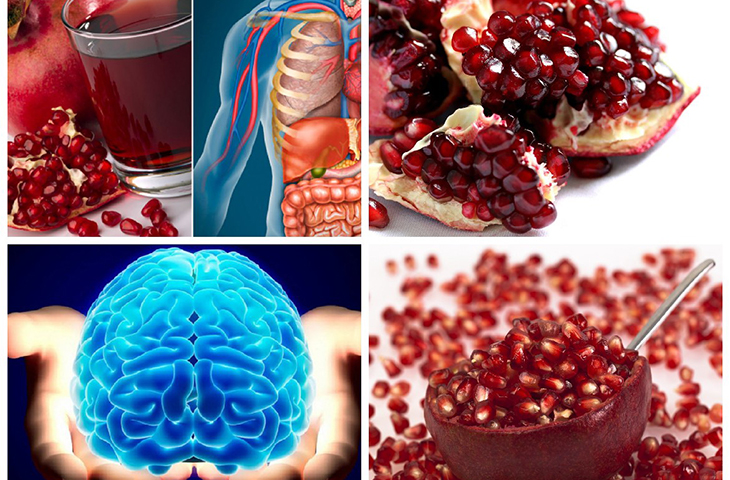Pomegranates are low in calories and fat but high in fiber, vitamins, and minerals. Benefits include antioxidants, heart health, urinary health, exercise endurance, and more.With the potential to support many aspects of health, from immunity to brain health, pomegranates are worth adding to your healthy eating routine.

Contains Vitamins A, B1, B2, C, E, and K
Pomegranates are a great source of vitamins A, B1, B2, C, and E.
They also contain vitamin K, which is vital for blood clotting.
Mangos, Brussels sprouts, papayas, and kiwi are other good sources of vitamin K.
Vitamin C (ascorbic acid) helps with immunity by strengthening your immune system.
Vitamin A (retinol) promotes healthy skin and vision.
Vitamin E (tocopherol) has anti-inflammatory properties that help with arthritis and other inflammatory diseases like asthma.
Vitamin B1 (thiamine) helps convert carbohydrates into energy to prevent fatigue. Vitamin B2 (riboflavin) aids in the production of red blood cells, which decreases the risk of anemia.
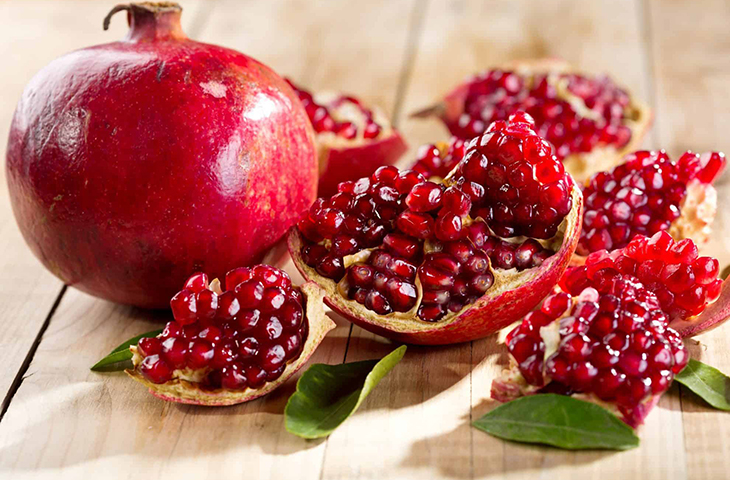
Packed with nutrients
Pomegranates are low in calories and fat but high in fiber, vitamins, and minerals. They also contain some protein.
Below is the nutrition for the arils in one average (282-gram) pomegranate fruit.
• Calories: 234
• Protein: 4.7 grams
• Fat: 3.3 grams
• Carbohydrates: 52 grams
• Sugar: 38.6 grams
• Fiber: 11.3 grams
• Calcium: 28.2 mg, or 2% of the Daily Value (DV)
• Iron: 0.85 mg, or 5% of the DV
• Magnesium: 33.8 mg, or 8% of the DV
• Phosphorus: 102 mg, or 8% of the DV
• Potassium: 666 mg, or 13% of the DV
• Vitamin C: 28.8 mg, or 32% of the DV
• Folate (vitamin B9): 107 mcg, or 27% of the DV
Comparatively, a 1/2-cup (87-gram) serving of arils provides 72 calories, 16 grams of carbs, 3.5 grams of fiber, 1 gram of fat, and 1.5 grams of protein.
Keep in mind that the nutritional information for pomegranate and arils differs from that of pomegranate juice, which won’t provide much fiber or vitamin C.
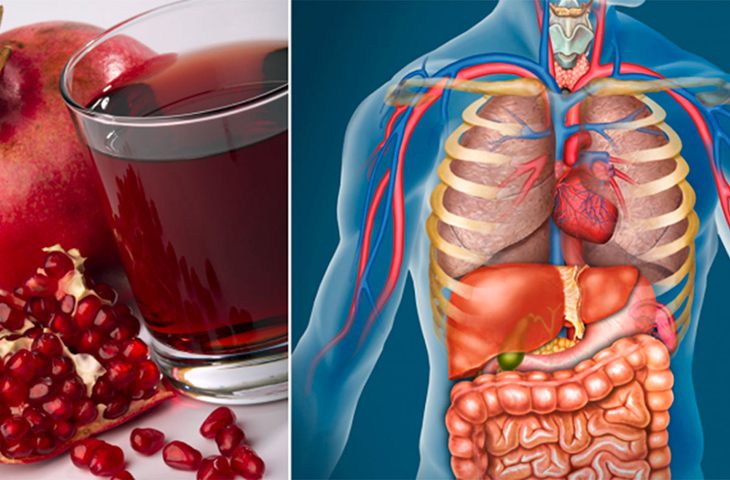
Rich in antioxidants
Antioxidants are compounds that help protect the cells of your body from damage caused by free radicals. Free radicals are always present in your body, but having too many of them can be harmful and contribute to a number of chronic diseases.
Pomegranates are rich in antioxidants and polyphenolic compounds that offer protection from this damage. The main bioactive compounds with antioxidant activity that are found in pomegranates are called punicalagins, anthocyanins, and hydrolysable tannins.
May offer heart health benefits
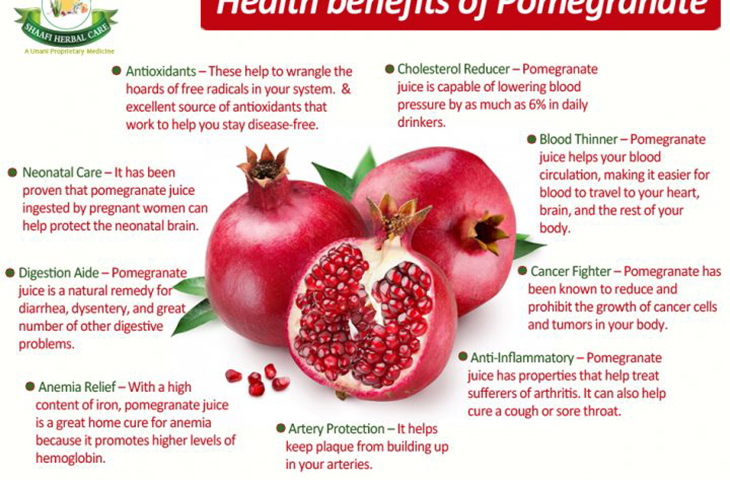
There is evidence that fruits rich in polyphenolic compounds, such as pomegranate, may benefit heart health.
Test-tube studies have found that pomegranate extract may reduce oxidative stress and inflammation in the arteries, lower blood pressure, and help fight atherosclerosis — plaque buildup in the arteries that can lead to heart attacks and strokes.
In one human study, people with heart disease were given 1 cup (220 mL) of pomegranate juice daily for 5 days. The juice significantly reduced the frequency and severity of chest pain, as well as certain biomarkers in the blood that suggest a protective effect on heart health.
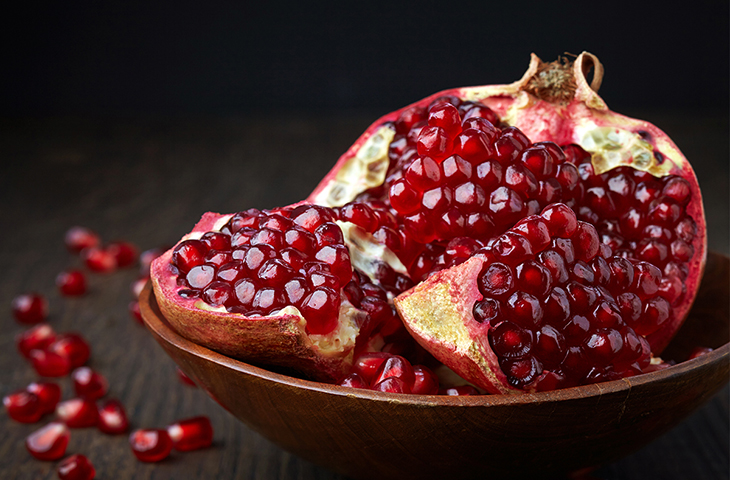
May have antimicrobial properties
Pomegranate compounds may help fight harmful microorganisms such as certain types of bacteria, fungi, and yeast.
For instance, both older and newer studies suggest that they may protect the health of your mouth by targeting unwanted oral germs that can become problematic when overgrown — such as ones that cause bad breath and promote tooth decay.
A test-tube study found that compounds from pomegranate also had antibacterial effects against Listeria monocytogenes, a bacteria found in moist environments that can cause severe illness if ingested.
Good for your brain
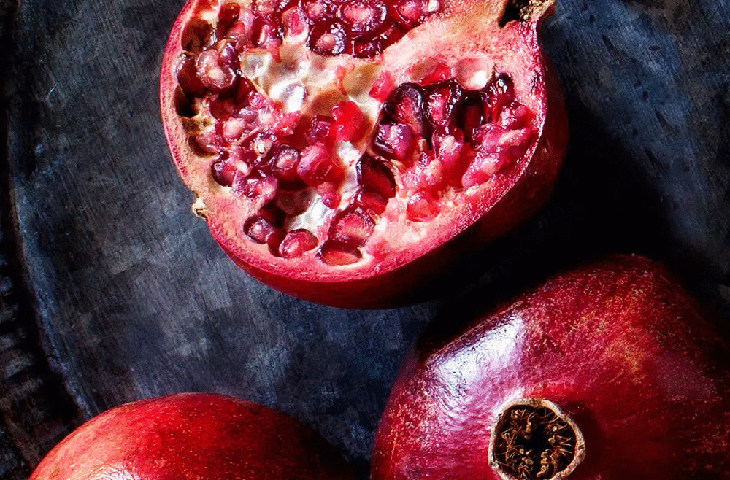
Pomegranates contain compounds called ellagitannins, which act as antioxidants and reduce inflammation in the body.
As such, they also offer protective benefits for your brain against conditions that are influenced by inflammation and oxidative stress.
Some studies have found that ellagitannins may help protect the brain from developing Alzheimer’s disease and Parkinson’s disease by reducing oxidative damage and increasing the survival of brain cells.
They may also support recovery from hypoxic-ischemic brain injury.
